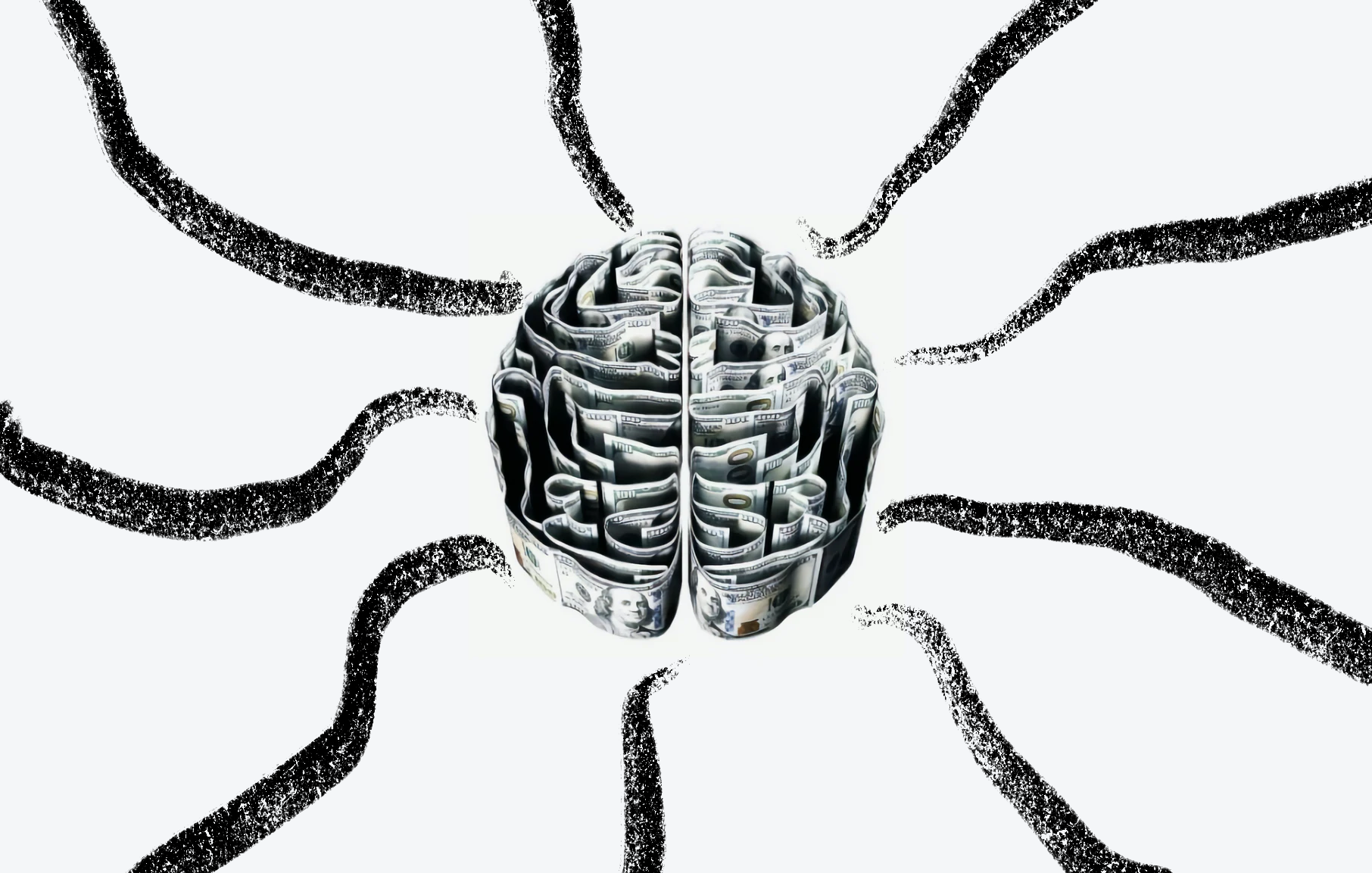
I’ve been obsessing about productivity for a long time. I used to spend a lot of time thinking about tools for thought and second brains. But these days, I spend most of my time thinking about metacognitions, the stress response, and interpersonal relationships.
In other words, it looks like I’m going soft. Or, at the very least, my interests are changing. But I’d actually argue that my interests are the same—I’m just approaching the same problems from a new angle. And it’s leading me to be a lot more productive than I have been in the past.
Let me explain. The shift in how I spend my time rests on a simple realization: productivity is not just software and notebooks and todo lists and frameworks and calendars and schedules and inboxes. It is all of those things, but it is also brains and bodies, memes and neurotransmitters. It is fingers that click keys, and furrowed brows, and emotions both fantastic and terrible. It is relationships: colleagues, managers, acquaintances, mentors, friends, and family. They push, pull, and undergird all of the work that we do in a much more significant way than any single software tool ever could.
Basically, if you turn over the rock of productivity you find a lot hiding underneath.
Underneath productivity is psychology, both individual and social. Underneath psychology is biology and neuroscience. And wrapped up in these layers, both supported by and supporting, is the humanities: literature, poetry, and philosophy.
If you want to understand productivity you could spend all of your time at the top of the stack. But my theory is that going deeper down—into psychology, biology, neuroscience, philosophy, and literature—is going to give me far more mastery over what comes further up.
When you go deeper into the stack you realize this: in order to be productive, you need to have an end toward which you are working. You also need to have a means or a strategy to get there.
Ideas in psychology, philosophy, and literature can help you understand your ends—to choose them more consciously, and to choose new ones if the ones you’ve already chosen aren’t serving you.
Ideas in psychology, biology, and neuroscience can help you understand your means: which ones are going to work for you and those around you—and why.
Here are some of the ideas from the last year that have most influenced how I understand myself: both my means and my ends.
The psychology of skimming on the surface
I have a kind of obsession with todo lists. I like to have everything written down because I want to make sure nothing falls through the cracks. But why? I realized that for me, the mere feeling of being on top of things is an end. And my means are elaborate, ever-changing todo list systems.
In the older version of myself, I never really questioned where this end came from. I wasn’t even fully aware it was an end. I was aware that I kept blanking on things I was supposed to do, or that I would forget some small detail that was crucial to a task. But I just dealt with it by relentlessly trying new means to stop doing those things.
But I’ve spent a lot of time understanding that part of myself, and I’ve come to a more nuanced understanding of where it comes from: I am just not very good at small details. Sometimes I can be! During some tasks I can get down into the guts of a thing for hours—like writing. But for many other tasks my mind works quickly and probabilistically and it’s really hard for me to get focused enough to really see into the details of things.
I’m ashamed about this. for a long time I would’ve told you that it wasn’t really true about me. I had hidden it from myself underneath a bunch of productivity systems. I knew it was a problem growing up. But after I got really into productivity, and started and sold my first startup, it was easy for me to think that I had gotten past the part of me that’s like that. But I haven’t! I’m still like that—and knowing that I’m like that in certain situations gives me a lot of power.
If I don’t know this about myself, I become attached to the idea that I’m on top of things. So when I make a mistake that might indicate that I’m not on top of things, my first reaction can often be defensive. I didn’t actually screw that up! or Anyone would have screwed that up! Why are you being so harsh?
Knowing this about myself makes it easier to admit to it. Which then makes it much more workable. For one, I may decide to loosen my attachment to the end of being on top of things. Maybe it’s not as important as I think it might be?
But for another, it helps me broaden my behavioral repertoire to include means of being on top of things that might have been off limits before. Once I could work through my sense of shame, and the defensiveness it generates, it allowed me to more effectively recruit other people to help me fill in the gaps. It turns out that my co-founder Nathan is exactly the opposite. He can’t help but be into the details of everything.
Before this might have felt threatening—he is what I want to be. But now it feels exciting. I can let him do the kind of thinking that I’m worse at, and focus on the stuff I’m actually good at.
Dopamine cycles
Let’s take another example. I have periods of time where I can’t get through my inbox. Where I just feel depleted, everything feels hard, and I’m behind. I call it a productivity cycle: getting behind generates shame, which generates avoidance, which gets me further behind. One thing I noticed while paying attention to this cycle is that if I move to a new place to work it often helps to break me out.
I dug into the science and found that this is probably for two reasons: 1) it breaks the conditioning that associates your current workplace with shame and avoidance 2) new places stimulate your dopamine system which helps to create a sense of motivation and reward-seeking behavior.
Going even further into the dopamine system was even more enlightening.
It turns out that though this technique of going to a new place might work a few times, it will stop working eventually. That’s because the more you spike your dopamine the more depleted the pool of dopamine your system can release becomes. The more depleted your dopamine, the lower your baseline state of motivation becomes. Basically, if you try to keep spiking your dopamine you’ll just feel worse and worse.
Basically, I’ve learned it’s actually not a great idea to spike my dopamine all the time. And if I do, I need to make sure I’m giving myself adequate rest in order to get back to baseline. This has gigantic implications for me. If I find myself sitting on the couch procrastinating and pulling on Twitter or refreshing my email or hustling to a new coffee shop because I can’t work at the old one, as if I’m looking for something—some feeling, some spark that I just can’t find—I can react to it much differently than I did in the past.
I can quietly recognize that engaging in this behavior isn’t going to get me to the state of motivation that I desire. Instead, I can put away my phone and just relax for a while.
What’s next?
The reality is that right now we still don’t know nearly as much about how our brains work as we could. It’s really, really hard to measure what goes on in there. But that’s changing all of the time!
There’s a ton of basic science going on that—I think—in the next 10 years will completely change the way we think about how our minds work, and how we relate to the world. We might be able to measure things like emotions, or more deeply understand how to get into and out of brain states like flow. Once we can measure things, we’re going to be able to change them much more effectively.
And people are working on this. There’s a company called Kernel building a helmet that can measure blood flow in the brain in real-time to help us more effectively measure what’s actually happening when we think about certain topics, or perform certain tasks. There’s a lab group at Stanford that’s learning how to use light to turn sets of neurons in the brain on and off to learn how they work.
I think all of this cutting edge stuff is worth understanding. And also, there's lots of stuff that's been around for hundreds or thousands of years that's worth digging in to as well. I'm interested in understanding all of the tools at our disposal, wherever they come from, to help us live better lives and achieve the things that we want to in the world. Sometimes that looks like a piece of software and sometimes it looks like a new way to respond interpersonally when you make a mistake.
So I’m going to be spending more time writing about what I’m learning in this space—I hope that's cool. If there's anything in particular you want me to cover, please leave me feedback!
Find Out What
Comes Next in Tech.
Start your free trial.
New ideas to help you build the future—in your inbox, every day. Trusted by over 75,000 readers.
SubscribeAlready have an account? Sign in
What's included?
-
Unlimited access to our daily essays by Dan Shipper, Evan Armstrong, and a roster of the best tech writers on the internet
-
Full access to an archive of hundreds of in-depth articles
-
-
Priority access and subscriber-only discounts to courses, events, and more
-
Ad-free experience
-
Access to our Discord community
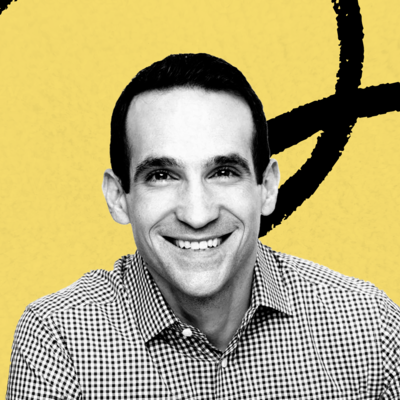
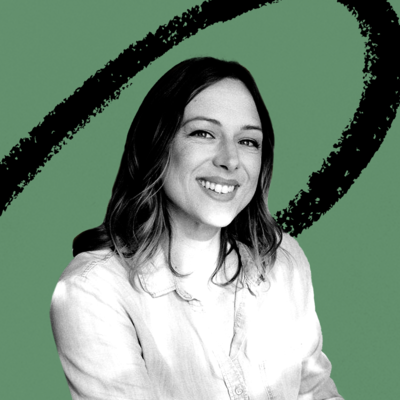
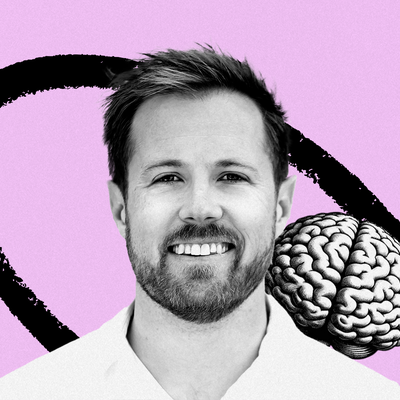
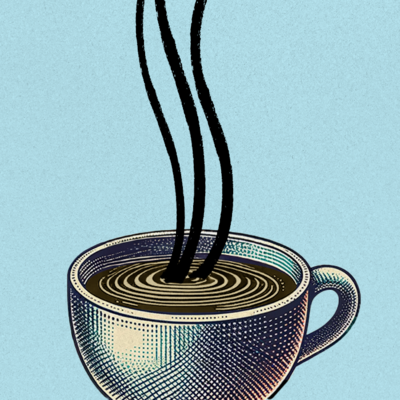
Comments
Don't have an account? Sign up!